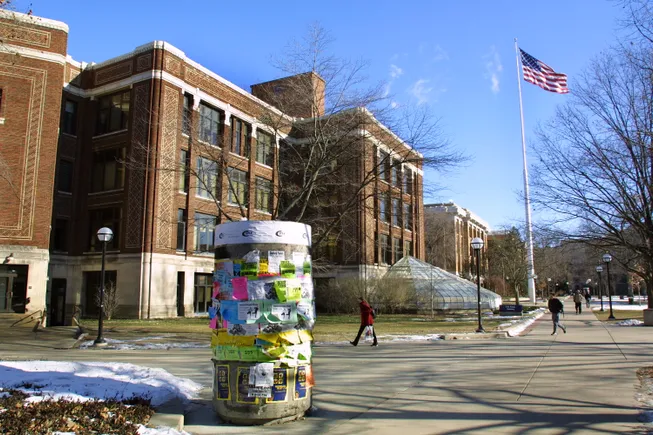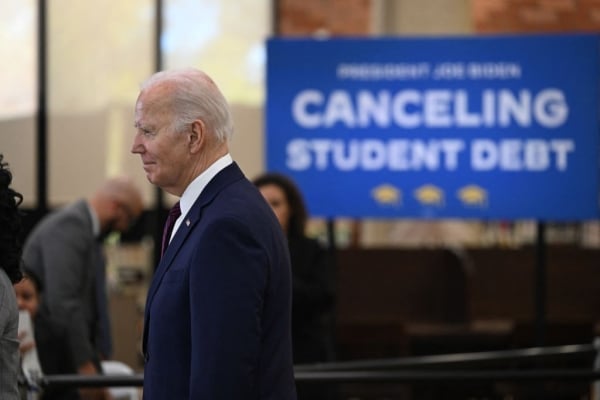- Stakeholders warn that the funding cuts will probably result in furloughs, redundancies or – in the worst cases – organisations being forced to close.
- The move comes after months of policy turmoil in the US, as the Trump administration wages war on international education.
- Experts question the legality of the move as a campaign is launched to save State Department international exchange programs.
State Department regional bureaus were informed of the cuts on August 13, via internal communications stating that government officials would work with them to “pull down” the affected programs “with the least possible disruption”.
The directive explained that the programs “were lower funding priorities in the current fiscal environment, so they are being removed from FY25 Funding”, according to communications from the Bureau of Educational and Cultural Affair (ECA).
“It’s an existential crisis for these programs and possibly for ECA,” said Mark Overmann, executive director of the Alliance for International Exchange – whose members make up 13 of the impacted programs, facing cuts of $85m.
According to Overmann, the 22 programs were all due to be renewed and were expecting to receive FY25 funds before September. Now, they will no longer be allowed to go through their awards process or renewal, and thus will be terminated.
“These organisations will now suddenly lose funding they’ve long anticipated and been promised, and this will likely result in furloughs, layoffs, and even organisational closures,” warned Overmann.
“Cancelling $100 million in programs which impact 10,000 students is devastating on many levels,” Bill Gertz, chairman of American Institute for Foreign Study (AIFS) told The PIE News.
“It means students’ plans and dreams are impacted… it means layoffs and financial disruption at the many fine cultural exchange organisations,” added Gertz, who sponsors the YES Abroad program which has been cancelled.
“These folks have worked tirelessly to make the world a better place,” he said.
Typically, the State Department’s funding process would be in full swing in the spring and summer, though this year has been plagued by delays and uncertainty for program organisers and students alike.
Following the lifting of the State Department’s funding freeze this March, stakeholders have been concerned about the lack of movement on the ECA’s FY25 funding process, which has caused delays in the opening of applications and interfered with students’ plans.
According to a former staff member of the Republican Senate Foreign Relations Committee: “The variety of programs impacted are too broad to point to a single issue or justification – everything from community colleges to disability and education exchanges.”
They warned that the cuts would isolate the US in the long term, raising particular concerns about the discontinuation of the Kennedy-Lugar Youth Exchange and Study (YES) Program.
This initiative “was created after 9/11 specifically to bring young people from predominantly Muslim countries to the US to build long-standing relationships with communities and individuals who might not otherwise every get to see our nation in anything other than filtered news and anti-US social media,” they explained.
The value of study abroad for US soft power and public diplomacy was echoed by Gertz, who said the cuts came “at a time in our history when cultural understanding is needed the most”.
If OMB is allowed to cut these Congressionally appropriated FY25 awards, it will give them license to do it again and again, opening the door to effectively eliminate international exchange programs
Mark Overmann, Alliance for International Exchange
Beyond the programs, their participants, alumni and staff, the move raises alarm bells about the White House’s ability to cut congressionally appropriated grants.
Historically, Congress has approved ECA awards, but this year the Office of Management and Budget (OMB) inserted itself “irregularly” into the process to stop congressionally approved funds from being spent, said stakeholders.
According to Overmann, the move could be illegal, with Gertz also stating it was unconstitutional for OMB to override Congress in such a way.
“OMB found a way to use a small, previously arcane piece of administration process to stop ECA program awards from moving forward,” Overmann explained, leading to the defunding and termination of 22 cultural exchange programs.
“If OMB is allowed to cut these Congressionally appropriated FY25 awards, it will give them license to do it again and again, opening the door to effectively eliminate international exchange programs,” Overmann warned.
The cancellations have shocked the US study abroad community, which recently received a vote of confidence in Congress, which drastically reduced the planned cuts for study abroad in the FY2026 budget.
“We believe we have the support of the majority of Americans who have supported our efforts for decades,” said Gertz. ” We are actively engaged with Congress on the future of ECA programs.
Sector leaders have already kicked into action, warning that the elimination of funding would “greatly damage 75+ years of exchange activity and the legacy of Senator Fulbright. It would destroy many of our programs and much of our work,” said Overmann.
The Alliance today launched a campaign to save State Department international exchange programs, urging stakeholders to write to members of Congress.
The State Department has not issued a formal announcement or replied to The PIE’s requests for comment.
It appears that the following programs are impacted, though the list may not be exhaustive:
- Community College Administrator Program (CCAP)
- Community College Initiative Program (CCI)
- Community Engagement Exchange (CEE, Leahy Initiative on Civil Society)
- Council of American Overseas Research Centers
- English Access Scholarship Program
- English Language Fellow Program
- Global Undergraduate Exchange Program
- IDEAS Program
- International Center for Middle Eastern-Western Dialogue (Hollings Center)
- Kennedy-Lugar Youth Exchange and Study (YES) and YES Abroad Program
- Leaders Lead On-Demand
- Mandela Washington Fellowship for Young African Leaders
- Mike Mansfield Fellowship Program
- National Clearinghouse for Disability and Exchange (NCDE)
- Professional Fellows Program
- Survey of International Educational Exchange Activity (IEEA) in the United States
- TechWomen
- The J. Christopher Stevens Virtual Exchange Initiative
- U.S. Congress-Korea National Assembly Exchange Program
- U.S.-South Pacific Scholarship Program (USSP)
- Young Southeast Asian Leaders Initiative (YSEALI) Academic Fellowship
- Young Southeast Asian Leaders Initiative (YSEALI) Professional Fellowship Program (PFP)





